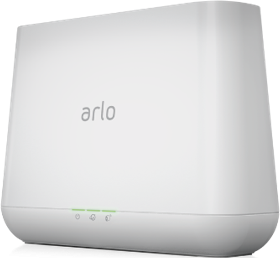- Subscribe to RSS Feed
- Mark Topic as New
- Mark Topic as Read
- Float this Topic for Current User
- Bookmark
- Subscribe
- Printer Friendly Page
- Mark as New
- Bookmark
- Subscribe
- Mute
- Subscribe to RSS Feed
- Permalink
- Report Inappropriate Content
For the last several days, I have not been able to login to either my.arlo.com or the Android application when connected to my home internet service, provided by T-Mobile (note this is not mobile or "hotspot" service - it's actual home internet with a provided gateway/router that I am connecting to via WiFi or ethernet). I have tried multiple browsers and devices and have cleared cache, etc., the results are always the same:
Android App: "Oops an error has occurred. Try again."
Web: "The request timed out", which covers a banner that reads "Http failure response for https://ocapi-app.arlo.com/api/auth: 0 Unknown Error"
Both these messages appear instantaneously - the requests are not actually "timing out". In the browser, the console shows CORS related errors.
When I disconnect my phone from WiFi and connect to 5G (which, interestingly, is also T-Mobile), I am able to login. Subsequently connecting back to WiFi, I can continue using the app. Presumably this will work until the authentication token expires.
- Related Labels:
-
Arlo Mobile App
- Mark as New
- Bookmark
- Subscribe
- Mute
- Subscribe to RSS Feed
- Permalink
- Report Inappropriate Content
@bobchan wrote:
For the last several days, I have not been able to login to either my.arlo.com or the Android application when connected to my home internet service, provided by T-Mobile (note this is not mobile or "hotspot" service - it's actual home internet with a provided gateway/router that I am connecting to via WiFi or ethernet). I have tried multiple browsers and devices and have cleared cache, etc., the results are always the same:
Android App: "Oops an error has occurred. Try again."
Web: "The request timed out", which covers a banner that reads "Http failure response for https://ocapi-app.arlo.com/api/auth: 0 Unknown Error"
Both these messages appear instantaneously - the requests are not actually "timing out". In the browser, the console shows CORS related errors.
I happen to have this service running (testing it), but my Arlo system is currently connected to my normal broadband service. When I just connected my PC to the T-mobile gateway's wifi, I was able to log into my.arlo.com with no errors using Chrome. The push notification was sent to my iPhone (which was not using T-mobile at all), and then clicking on "trust" worked as is usually does.
Have you tried restarting their gateway?
- Mark as New
- Bookmark
- Subscribe
- Mute
- Subscribe to RSS Feed
- Permalink
- Report Inappropriate Content
I haven't manually restarted the gateway recently, because I'm experiencing no other issues with the service. I can certainly try if you think it will help, but I'm doubtful.
Searching for this thread I found someone with a similar complaint - ultimately they just re-setup their cameras and it worked, so maybe I'll give that a try. There wasn't much technical detail in the thread, though.
T-Mobile ISP does a few things different regarding Network Address Translation and IPv6, so I was thinking that might be the issue.
- Mark as New
- Bookmark
- Subscribe
- Mute
- Subscribe to RSS Feed
- Permalink
- Report Inappropriate Content
@bobchan wrote:
T-Mobile ISP does a few things different regarding Network Address Translation and IPv6
Yes, it does (most mobile broadband solutions do, and even some fiber/cable services are using CGNAT). One consequence is that port forwarding isn't possible.
But I can log into the Arlo Secure App when my iPhone is connected to the T-Mobile wifi (with mobile data off). My Arlo kit is connected using my normal ISP, but I don't think that affects the ability to log in.
- Mark as New
- Bookmark
- Subscribe
- Mute
- Subscribe to RSS Feed
- Permalink
- Report Inappropriate Content
Similar to the other user who posted about this, connecting to a VPN allows me to login. As I recall from some related reading, the VPN forces me onto IPv4 whereas T-Mobile ISP is natively IPv6. But I'm not a networking engineer, so I don't truly know what the implications are.
- Mark as New
- Bookmark
- Subscribe
- Mute
- Subscribe to RSS Feed
- Permalink
- Report Inappropriate Content
@bobchan wrote:
Similar to the other user who posted about this, connecting to a VPN allows me to login. As I recall from some related reading, the VPN forces me onto IPv4 whereas T-Mobile ISP is natively IPv6. But I'm not a networking engineer, so I don't truly know what the implications are.
Odd, as I can log in w/o a VPN, and haven't done anything special.
Their network core is IPv6, but they do advertise IPv4 (and route it differently). But there are some other things that VPNs often do - for instance, they generally replace the ISP's DNS servers with their own.
You could test disabling IPv6 in your PC, and see if that works w/o the VPN.
-
Arlo Mobile App
621 -
Arlo Pro 2
11 -
Arlo Smart
176 -
Before You Buy
991 -
Features
438 -
Firmware Release Notes
57 -
Google Assistant
1 -
IFTTT (If This Then That)
24 -
Installation
1,144 -
Online and Mobile Apps
865 -
Service and Storage
317 -
SmartThings
37 -
Troubleshooting
6,311
